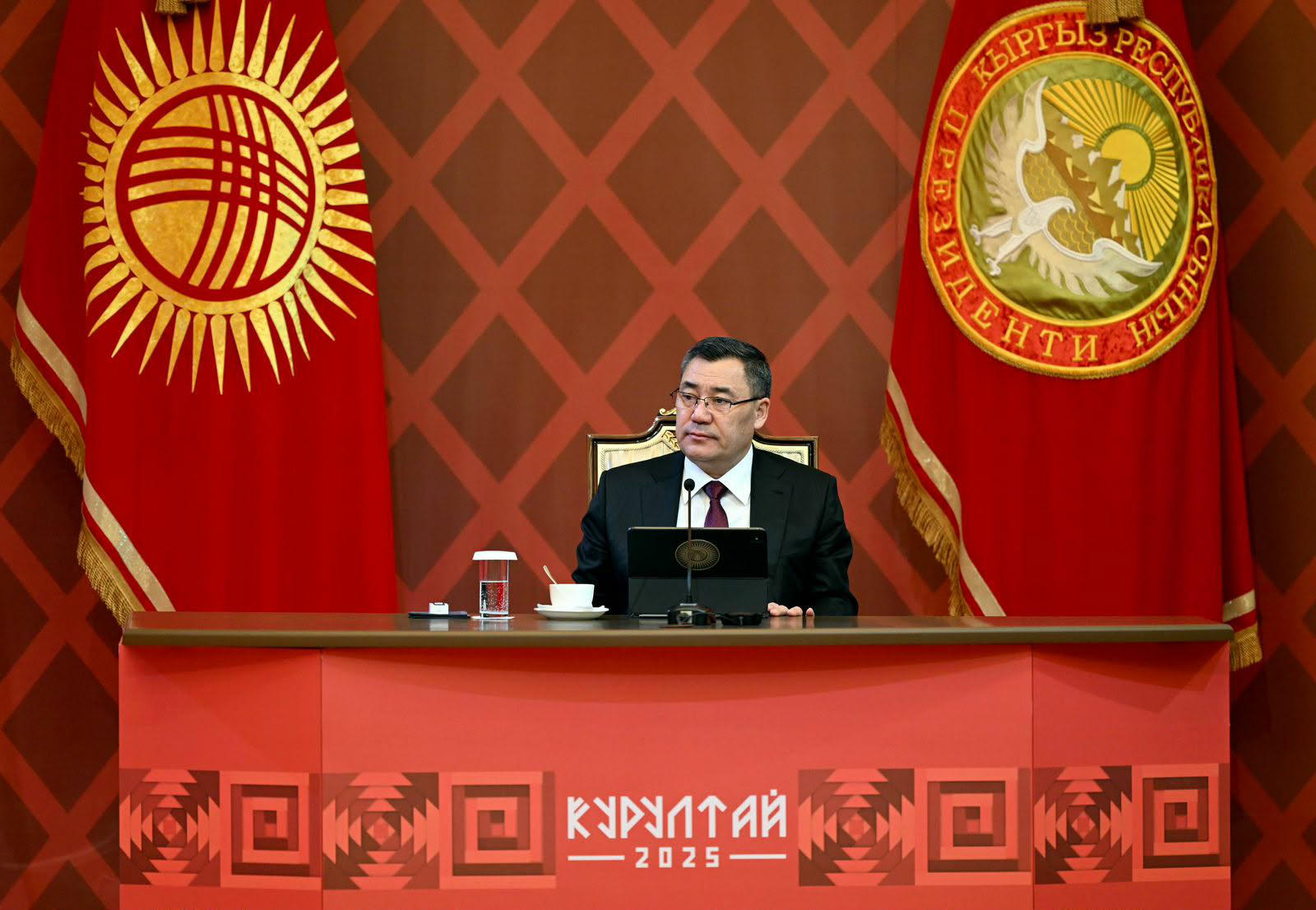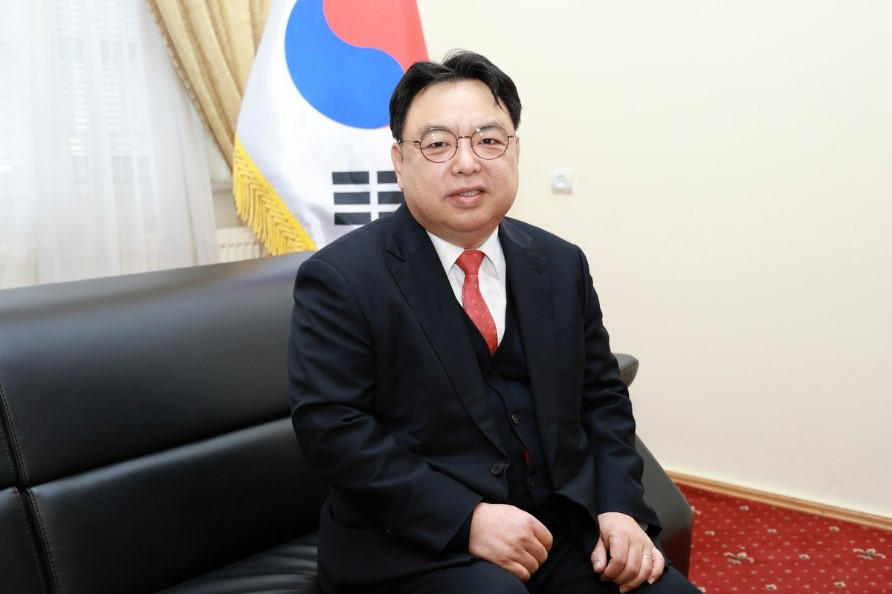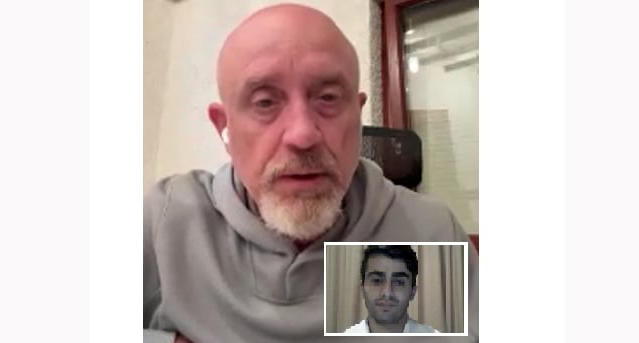Ambassador of Sweden to Georgia Ulrik Tideström: The door has opened and now everything depends on Georgia - reforms and more reforms, this is the way to the European Union
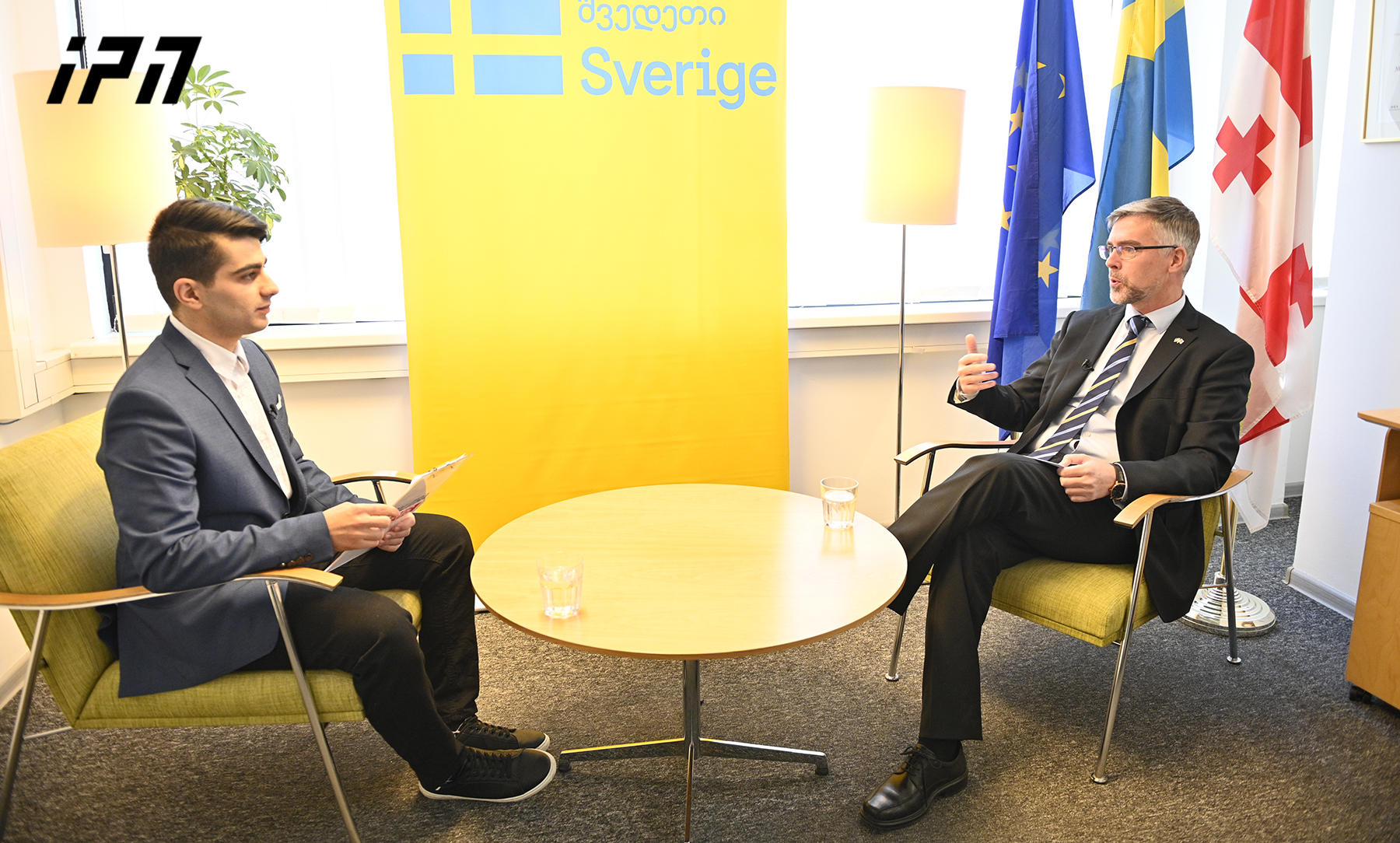
The European Union and the United States are Georgia's strategic partners, country's best friends and strongest supporters. Of course, the European Union is not trying to involve Georgia into the war - with these words, Swedish Ambassador to Georgia Ulrik Tideström responds to the political narrative, according to which the West is trying to involve Georgia into the war.
How he evaluates the steps taken by the Georgian authorities to fulfill the 12 recommendations of the European Union, how Sweden supports long-standing reforms in Georgia and whether the European Union be able to maintain unity in the background of economic problems – Ambassador of Sweden to Georgia, Ulrik Tideström discussed these and other issues in an exclusive interview with the InterPressNews.
- First of all thank you for finding time for the interview. On June 23 the European Council granted Ukraine and Moldova the EU candidate status and offered a roadmap for Georgia to qualify for the same status. European Union set out 12 conditions for granting Georgia candidate status. Based on your observations, how is Georgia implementing these recommendations of the European Union? In the last four months do you see any progress in judicial independence, media reform, political de-polarization and de-oligarchizing?
- Thank you so much for your interest. As you rightly said, at the European Council in June, the EU leaders decided to recognize a European perspective for Georgia. It means that long term, the EU has opened the door for possible future membership. Short term, Georgia has been presented with a very concrete possibility to obtain candidate status as the next and important milestone on this long journey to the European Union. A possibility to get candidate status once a set of 12 priorities have been addressed. So the door has been opened. Now it is up to Georgia to do the work and address these 12 priorities. I very much hope that Georgia will succeed. Sweden has always supported the clear choice of the Georgian people for European integration.
The progress of Georgia will be assessed in due time by the European Commission and eventually be the EU member states. I will not prejudge the progress, but let me share three things that I very much hope for. I hope that we will see a credible and real delivery on the substance of the 12 points. I also hope that we will see a process on the Georgian side that is broad and inclusive and consultative. And not least, I hope that Georgia, all of Georgia, will unite around this effort. This is what I'm hoping for, again, wanting Georgia to succeed.
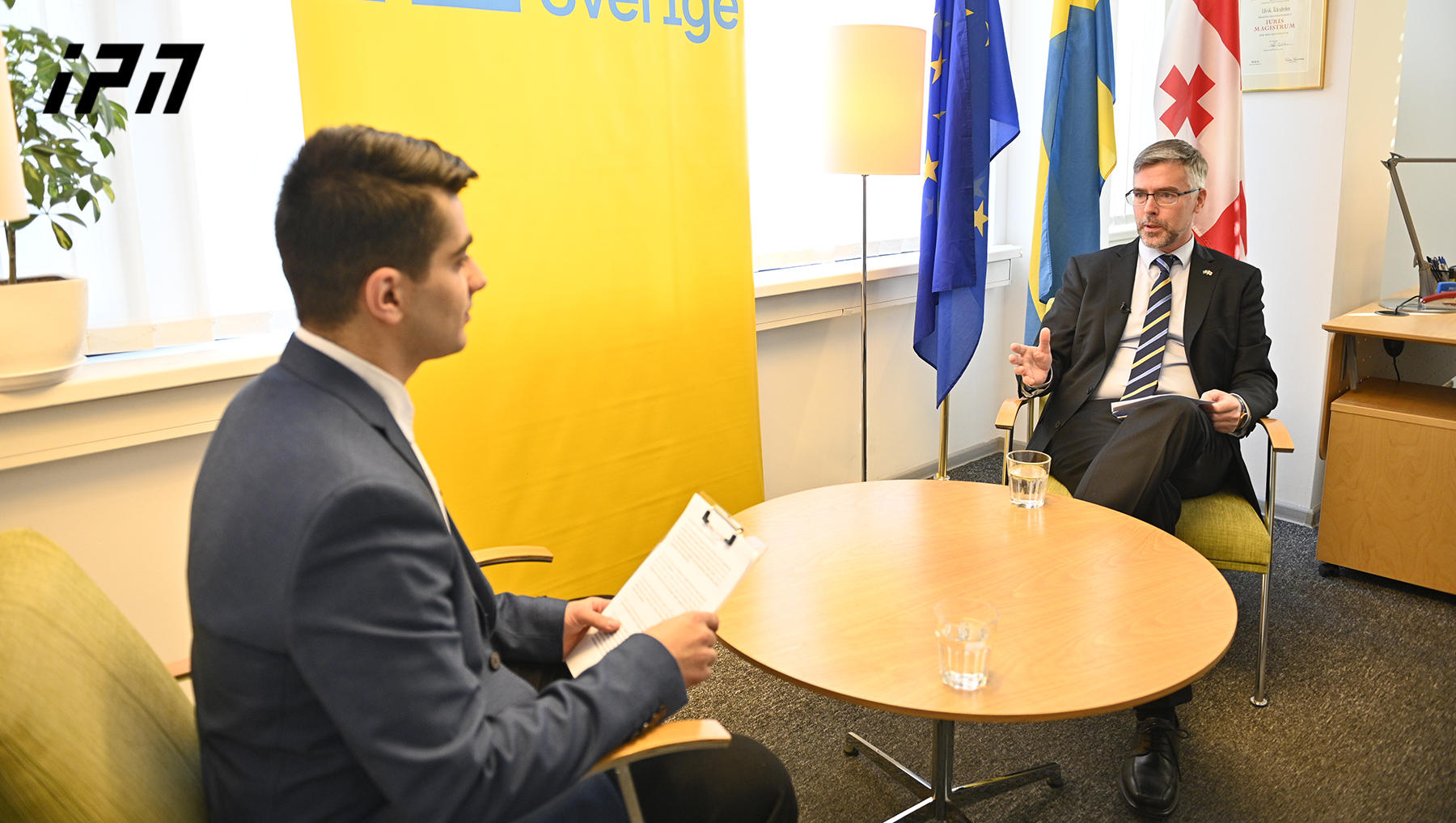
- During the last months, the relationship of Georgian Dream has become unfavorable with EU and US Ambassadors, as well with partners in general; some of the politicians from the ruling party even blamed the west - that they are willing Georgia to be involved in the war. What do you think, what can be behind the anti-Western propaganda in Georgia and how can this damage Georgia’s integration in EU structures?
- Of course, we follow the domestic debate in Georgia. Some of the things said over the past weeks and months are a bit difficult for me to understand. As we all know, the European Union and the United States are Georgia's strategic partners, the country's best friends and strongest supporters. And our only agenda is to support Georgia, to support the choice of Georgia and the Georgian people for European and transatlantic integration. The effects you ask me about – I think that people in Georgia know what I just said, that the EU and the US are your closest friends and strongest supporters. And I am sure that people understand that the EU is certainly not trying to quote “drag Georgia into the war” unquote. The founding idea of the European Union is and remains to have peace in Europe, and prosperity. And this is also the whole idea with our strong partnership with Georgia. It's to support peace, development and prosperity in Georgia, and the resilience of Georgia. And I think people know this.
- Georgia and Sweden established diplomatic relations in 1992 and they are celebrating the 30th anniversary of their diplomatic ties this year. What are the main features of relation between the countries and in which direction should Georgia and Sweden deepen their cooperation?
- Yes, you're right. This year we are celebrating 30 years, actually 30 years of the re-establishment of diplomatic relations. Because during the First Republic of Georgia over 100 years ago, we did have diplomatic ties, which we reassumed 30 years ago. And we have very close relations, a very strong friendship between Sweden and Georgia. For us, it is and will always be about the following main things – to support Georgia's freedom, sovereignty, territorial integrity, and of course, the European integration.
I will mention some examples of how Sweden demonstrates our support for Georgia. One thing is, of course, to keep Russia's ongoing aggression against Georgia on the international agenda. It is about Sweden being one of the main participants in the EU Monitoring Mission in Georgia. It is about us supporting steps for engagement and reconciliation when it comes to the domestic dimension of the protracted and unresolved conflicts. And it is very much about supporting the broad reform agenda in Georgia. Because reforms and more reforms, that is the way to the European Union. As you might remember, Sweden together with Poland initiated the Eastern Partnership thirteen years ago, and we keep pushing for an ambitious agenda for this partnership also for the future. Sweden is also providing a lot of bilateral support to the reforms, which I am happy to say more about later in the interview.
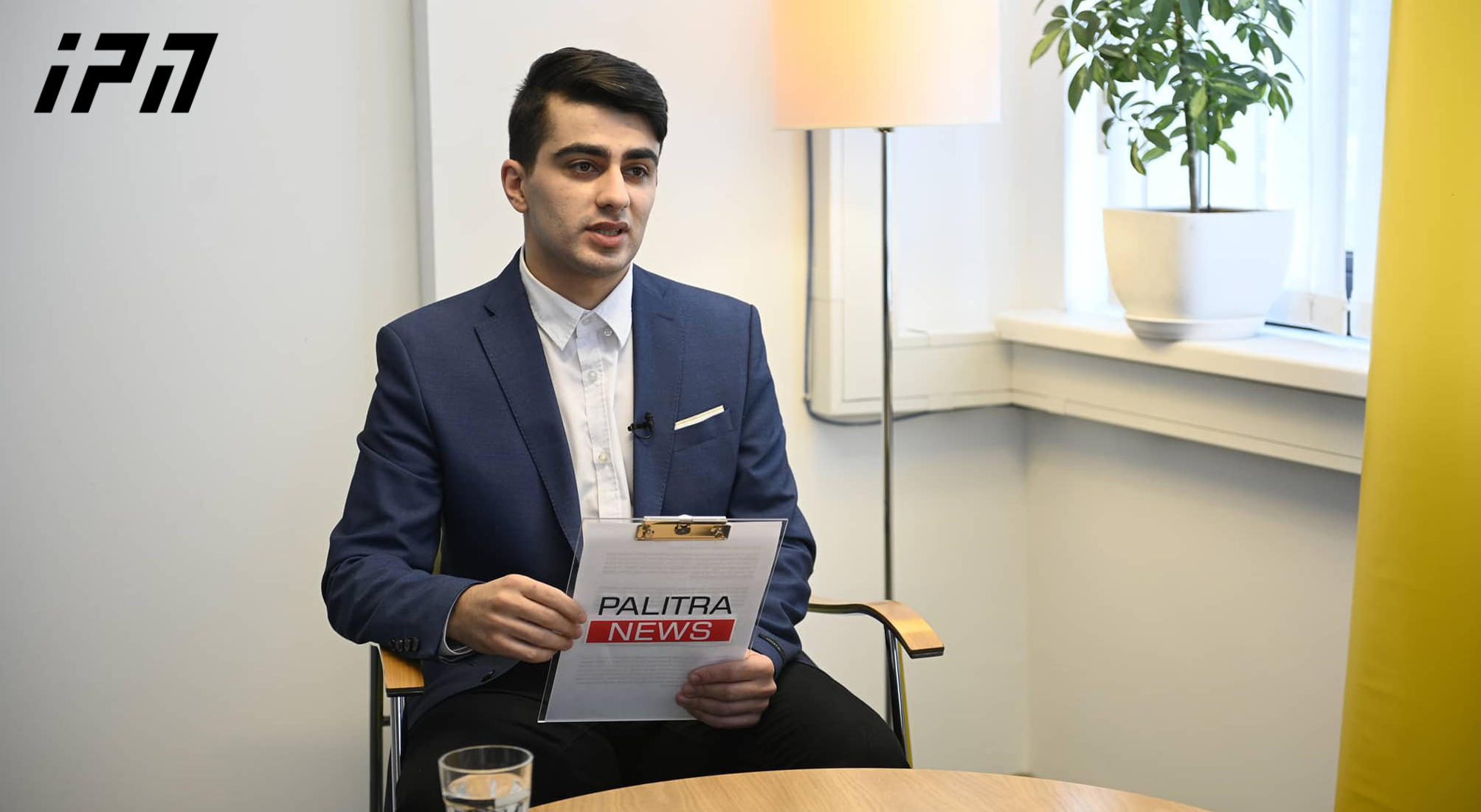
I also want to highlight the importance of the people-to-people contacts between Georgia and Sweden, we see a very good development of that. More and more Georgians come to Sweden, including for studies. We provide a lot of scholarships for young Georgians to study in Sweden. And in this direction, more and more of my compatriots are finding their way to Sakartvelo to discover and explore your beautiful country. On the business side, I'm really happy that we have quite a number of Swedish companies that are present in Georgia. Together they create jobs and incomes for over 20 000 women and men in Georgia, which is quite a lot. And they are also very active when it comes to corporate responsibility, sustainable business. So it's not just about good numbers, but also about them being good role models.
In my opinion, there is potential for even closer cooperation Sweden-Georgia. There are many things we can develop, not least with time to trade more with each other. Also, I think we could have higher ambitions when it comes to cultural exchanges in both directions.
- Sweden is one of the greatest supporters of Georgia. Could you tell us how Sweden is supporting long-standing reforms in Georgia and what are the main focuses?
- For two decades Sweden has been one of Georgia’s main bilateral donors or as I prefer to call it development partners. We focus entirely on the broad reform agenda related to the European integration. The people of Sweden have invested around one billion Georgian Lari in different programs and projects all in support of the European integration reforms. We are focused on four areas. One is the continued strengthening of democracy, human rights, equality including gender equality, and the rule of law. In other words our shared fundamental values on which the EU is built, the values on which Georgia’s or any country’s European integration must build.
A second area is the economic development of Georgia and the economic integration with the EU market. For example, we provide a lot of support to small companies in Georgia to make it easier to start a business, to grow a business and to do business with the EU market.
A third area is the environment. We work a lot with Georgian partners on environmental protection, biodiversity, climate change and resilience against the effects of climate change.
The fourth area is supporting a peaceful and inclusive development in Georgia. For the future, we will try to do more for instance to support decentralization reform and a more inclusive economic growth.
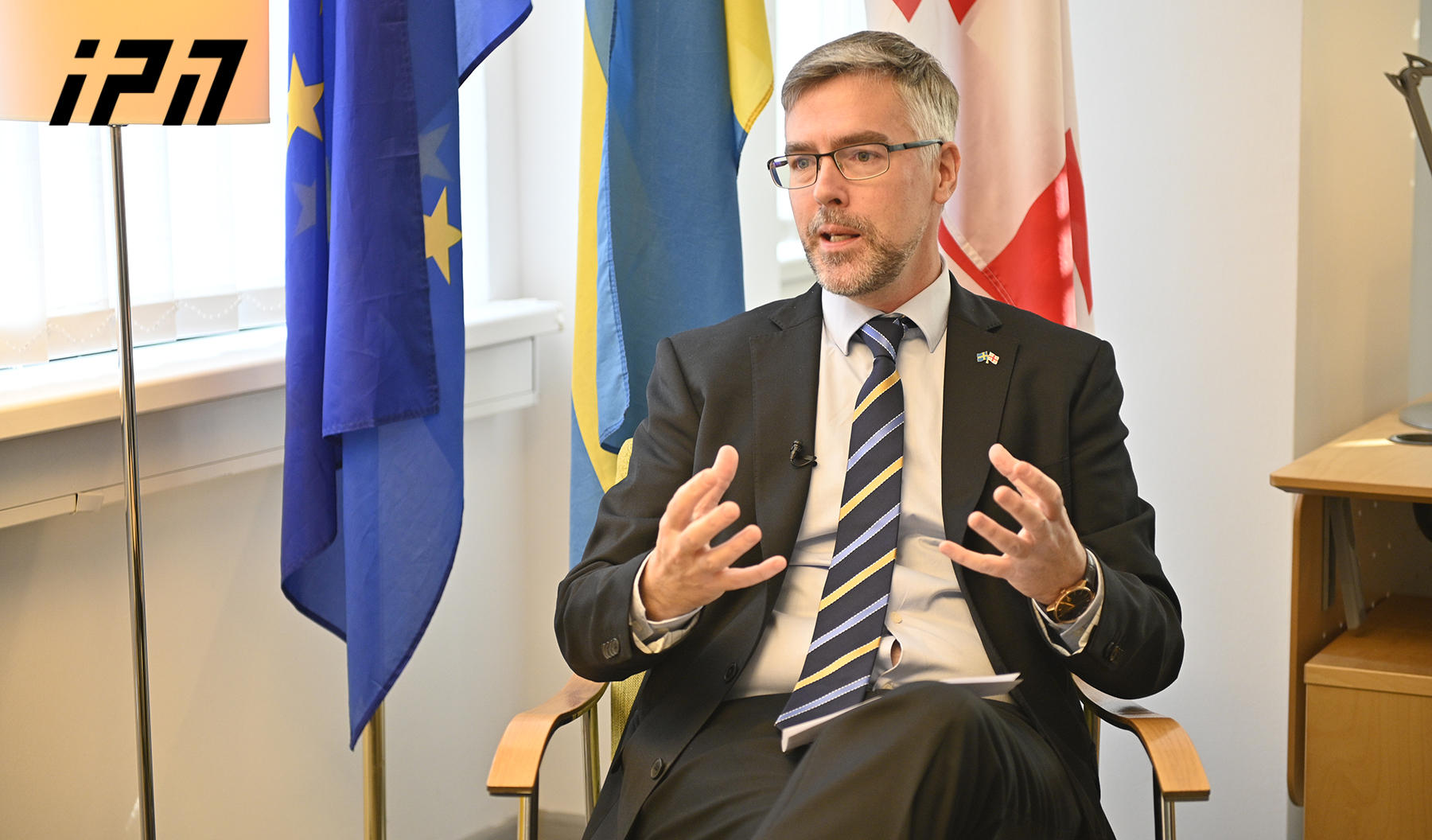
- Recently there have been political changes in Sweden, where the center-left Social Democrats had been in power for 8 years. Country’s new Prime Minister Ulf Kristersson confirmed in a speech that he will be leading a three-party coalition government with the Moderates, the Christian Democrats, and the Liberals. He announced the members of his Cabinet and set out priorities for his government, including fighting crime, a stepped-up defense posture, and climate change. As the Ambassador of Sweden, what can you tell us about this process, should we expect any major changes in the domestic and foreign politics of your country?
- Yes, we had elections in September and two-three weeks ago the new government took office. Domestically there are several priorities, I will mention some of them. One has to do with migration and integration, another one has to do with our policies to tackle crime including some challenges we face with gang criminality. A third priority area has to do with energy. Short term it is about supporting Swedish companies and citizens to tackle the unusually high electricity prices. Long term it's about energy supply. We will keep developing renewable energy sources like wind, solar and hydro but also develop our plannable electricity sources including nuclear. These are some examples of the domestic priorities. It's also about improving the quality of our schools, our healthcare and so on.
In foreign policy, three main priorities have been outlined by our new government. One is to keep supporting Ukraine. We will keep providing financial, humanitarian and security support including military equipment. We will also provide support for the reconstruction of Ukraine for the future. So that's one thing. Another priority is to continue and conclude our NATO accession process. And a third thing is Sweden's upcoming presidency in the European Union which starts on 1 January.
- After Russian invasion of Ukraine Sweden, a neutral country since 19th century, with Finland, decided to join the NATO. This decision was welcomed by the leadership of the alliance. Can you tell us did Sweden manage to reach agreement with Turkey, which was demanding a "written agreement" from Finland and Sweden on steps to end their "support for terrorism" if they want to join the NATO, and when should we expect Sweden and Finland as full-fledged members of the alliance?
- As you rightly said, Sweden and Finland have applied for NATO membership. We are happy to note that our applications have been welcomed by the alliance, and we feel encouraged about the strong and unison messages that Sweden and Finland in NATO will strengthen the security of the entire alliance. In the summer at the Madrid NATO summit Sweden, Finland and Turkey entered into a trilateral agreement and we are working on implementing this agreement. We also maintain close contact and dialogue with Ankara. So we hope that our accession to NATO can be concluded as soon as possible.
- More than 8 months passed since Russian invasion of Ukraine. The events did not develop in that way as President of Russia Vladimir Putin planned. Declaring partial military mobilization, illegally annexing Ukrainian regions, destroying infrastructure, bombing Ukrainian cities and towns every day are the latest development of the war. Also Putin is trying to manipulate with Nuclear weapon. What do you think what is the strategy of Vladimir Putin, what is he trying to do with the latest steps?
- We see Russia's unprovoked, illegal and brutal war against Ukraine as the biggest challenge to European security in decades at least. There are also global implications of Russia's war, including for food security, including for our economies, including on energy. What to expect for the future? I would say that there are many uncertainties stemming from Russia's war and actions. I think we should focus on three things. One is to keep supporting Ukraine for as long as it takes and with what it takes to support Ukraine's legal right to defend themselves and our common values. Second thing, we must keep up the sanctions against Russia and we must ensure accountability for Russia's actions. And the third thing is to think about and strengthen our security, and as part of that to be prepared for different scenarios.
- Western countries are trying to help Ukraine against Russian aggression. At the same time the population of EU countries are facing economic difficulties, inflation, tax rising. Do you think that the EU countries will manage to maintain a strong, common position toward Russian-Ukrainian war if the conflict will last longer and how much the union is ready for such challenges, especially in the winter when the EU countries have difficulties with the lack of natural resources?
- Unity is absolutely essential in this situation. The EU and transatlantic unity and determination has been and remains very strong. We must and we will keep it that way. And we need to maintain strong unity not only between our countries, but also within our countries and societies. This is also very important and brings me back to where we started this interview. I do hope that Georgia will be united, both in face of the threats that we are all facing, and in order to use the great opportunities that are now on the table for Georgia’s European integration. So I will finish by referring to what it says on the Georgian coat of arms– Strength is in Unity.
Beka Beriashvili
InterPressNews
